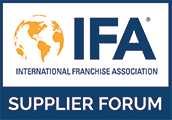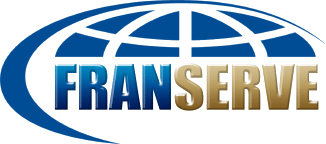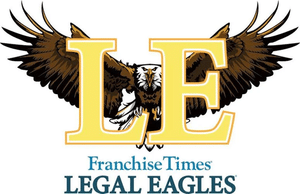Tom Spadea was interviewed on the Franchise Today podcast by host Paul Segreto. In this episode, Paul and Tom discuss the nuts and bolts of landlord and lender negotiations and how the same, done effectively, improves the chances of franchise success.
Key Discussion Points
Who’s selling, who’s buying, and how has the recession impacted franchise systems?
The recession has created a more conservative environment, but this isn’t such a bad thing. Tom explains, “more people are asking the questions, what if I fail or how do I rebound from this?” This may drive franchisors towards smaller investments, but there is still a large amount of business going on. Strong systems continue to thrive, while weaker systems can’t afford to survive; this allows stable franchisors several growth opportunities.
What are the characteristics of a stable franchise system?
Systems that have procedures in place to guide franchisees and the franchisors through the lease and loan process. Tom adds, “you should develop a checklist,” so parameters are met prior to the day of opening.
“It’s not a linear relationship;” the franchisee, franchisor, landlord and bank have to communicate. When structures are in place to maintain communication among all parties, there is less chance of a breakdown.
What should franchisors be looking for in the franchisee’s lease and loan agreements?
For franchisors, notice provisions are critical. Negotiating how contractual matters will be handled lays out clear guidelines for future communication regarding lease and loan documents. As a franchisor, you should want to be notified about everything so you can get in front of a problem should it arise.
For franchisees, personal guarantee is important. Tom states, if something goes wrong “and you are unable to pay your rent, you will want to understand how you can get out of it.”
What are common lease and loan negotiation errors?
Tom sees a lot of situations where franchisees commit to a location before negotiations really begin. “It puts your attorney in a hard spot as far as negotiating a space if a landlord and/or franchisee won’t come to compromise.”
A common error on the franchisor side — the lease is signed, but “we didn’t stop and think about what happens if things go wrong.” Being organized and preemptive matters.
Learn more about commercial lease negotiations for franchisees.
Recommendations for Failing Units
One of the number one mistakes attorneys see all the time are franchisees that don’t speak up when they should. “Bankers see your financials and understand that sometimes things need to be renegotiated.” However, it is hard to recover if your communication comes to a halt.
Franchisees should be proactive in these kinds of situations, but it also falls on the franchisor. A successful system will build the right resources and hire the proper professionals so franchisees can excel when it comes to business planning.







